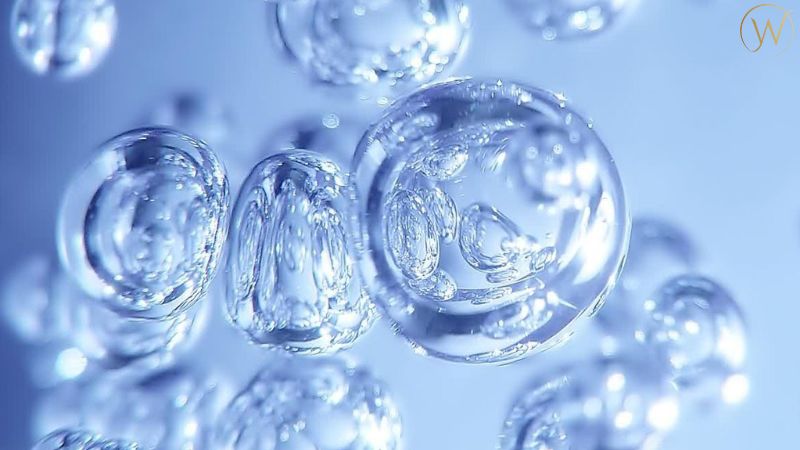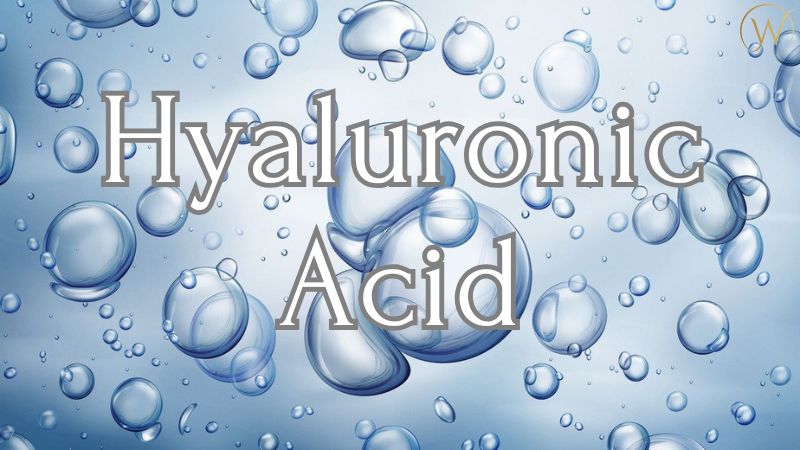ingredient
What is Hyaluronic Acid and what are its benefits to the skin?
What is Hyaluronic Acid and what are its benefits to the skin?
Hyaluronic Acid (HA for short) is known for its strong water absorption and moisturizing ability to keep skin supple, elastic and radiant, making it a very common and important ingredient in the skincare industry. So, what exactly is hyaluronic acid? What are its types and effects? **Let Dr. W TrueBeauty bring you an in-depth understanding!
What is Hyaluronic Acid?
Hyaluronic Acid, or HA for short, is a natural hydrophilic molecule that is found in the skin, eyes, joints, ligaments, cartilage and other tissues of the human body, with the greatest amount found in the skin. As early as in the 1960s, HA has been used in skin care products, and since 1990, it has been more widely used in various formulations to hydrate and moisturize the skin and improve its elasticity.
Common Types of Hyaluronic Acid
There are three common types of hyaluronic acid on the market, each with a slightly different molecular size and function:
1. Macromolecular Hyaluronic Acid (Prototype HA)
This molecule is too large to penetrate deeply into the skin, so it mainly works on the surface of the skin.Helps form a water barrier to minimize moisture lossIt maintains the skin's surface moisturization.
2. Sodium Acetylated Hyaluronate
This is the smallest form of the molecule, HA.Penetrates deep into the skin's stratum corneum.It is often found in high-performance moisturizing serums and is especially suitable for dry, rough skin.
3. Small molecule hyaluronic acid (Sodium Hyaluronate)
molecule is smaller than the prototype HA.Water-soluble, strong penetrating powerIt is very suitable for daily moisturizing of normal skin type and is a common ingredient in most daily lotions or masks.

What is the mechanism of action of hyaluronic acid?
Hyaluronic acid is like the "absorbent sponge" of the skin. When it comes into contact with water, it can absorb and carry water equivalent to 500 to 1,000 times its own weight, making the skin look plump, radiant and elastic.
However, it is important to note thatWhen ambient humidity is below 70%Hyaluronic acid can have a "reverse wicking" effect, which means it takes water away from your skin and dries it out instead.
Therefore.After applying a hyaluronic acid-based moisturizer, always remember to pair it with a water-locking moisturizing lotion or cream.It helps the skin to lock in the absorbed moisture and maintain long term hydration and elasticity.
Extended Reading:What is Peptide? Learn more about the powerful effects of Peptide on your skin.
What does hyaluronic acid do?
Hyaluronic Acid (Hyaluronic Acid) does more than moisturize, it makes the skin healthier, softer, and more supple, and has many additional benefits, including:
-
Instantly smoothes skinHyaluronic acid quickly smoothes out the dry, rough surface layer, leaving the skin smoother and more refined to the touch.
-
Strengthens the skin's protective barrier: Helps maintain the skin's moisture needs and fights against external environmental damage.
-
Deep Moisturizing & Anti-Aging: Effectively hydrates the skin while preventing fine and dry lines and slowing down the aging of the skin.
-
Improves elasticity and resilience: Makes skin look firmer and healthier and helps skin to repair itself.
-
Improve sensitive and problematic skin conditionsHyaluronic acid can also soothe skin discomfort and help repair skin conditions such as eczema and redness.

What kind of skin is Hyaluronic Acid suitable for?
Hyaluronic Acid (Hyaluronic Acid)Suitable for almost all skin typesIt is ideal for use on oily skin, acne-prone skin, combination skin, sensitive skin, and even problematic skin that is undergoing treatment. Because it absorbs quickly and is not heavy, it is ideal for use in oily skin care products. Although oily skin may appear to be oily, it is often "oily on the outside and dry on the inside", and still needs mild moisturizing ingredients to hydrate and stabilize the skin.
And for dry or extremely dehydrated skin.Hyaluronic acid is an indispensable moisturizer.The skin looks and feels more plumped and refined with the addition of Hyaluronic Acid. By adding Hyaluronic Acid and using it with a hydrating cream, it restores elasticity and hydration to dry skin, making it look and feel fuller and more refined.
Extended Reading:What is Vegan Skin Care? Should I choose to use vegan skincare products?
How to Use Hyaluronic Acid Skincare Products Correctly?
Hyaluronic Acid is often found inSerum and MoisturizerHyaluronic acid can be absorbed through different layers of the skin and directly hydrates the skin. To maximize its effect, it is recommended that products containing Hyaluronic Acid be used in the following waysIncorporate into the daily maintenance processThe frequency of application can be adjusted depending on skin condition and needs. The frequency of application can be adjusted depending on the skin condition and needs, but it is usually recommended that you use this product as often as possible.Apply in the morning and eveningIt's ideal.
The proper order of use of hyaluronic acid products in your daily regimen:
-
Morning Maintenance Steps:
Makeup Removal → Face Washing → Lotion → Hyaluronic Acid Serum → Lotion/Moisturizer → Sun Protection -
Evening Maintenance Steps (with Special Care)
Remove make-up → Wash your face → Make-up lotion → Effective serum (e.g. anti-aging, whitening) → Moisturizing cream with hyaluronic acid → (Use good night mask as appropriate)
Other Uses:
In addition to topical products, hyaluronic acid can also beThrough oral supplementation(e.g., capsules, powder, etc.), but it is recommended to follow the dosage and frequency recommendations of your dermatologist or nutritionist for these supplements.
In addition, hyaluronic acid is also widely used forMedical InjectionsFor example, moisturizing injections, fillers, etc., the concentration usually ranges from 1.2% to 3.5%. If you are considering injectable supplementation, you should consult a professional dermatologist for personalized treatment according to your skin condition and needs.

Possible side effects of using hyaluronic acid
Hyaluronic Acid is a relatively safe ingredient for skin care, but there are a few things you should be especially aware of:
1. Overuse or improper use
Although hyaluronic acid is an excellent moisturizing ingredient, it can be used as a moisturizer ifExcessive use or failure to use the right locking product.The skin may become dry, prickly and even peeling.
2. Use with caution during pregnancy and breastfeeding.
There has not been enough research to confirm whether hyaluronic acid is completely safe for pregnant or breastfeeding women.It is recommended to consult a dermatologist or obstetrician/gynecologist before use.Products containing hyaluronic acid.
3. Cancer patients need to pay special attention
Some studies suggest that hyaluronic acid may promote the growth of certain cancer cells. Therefore, people who have a history of cancer or are undergoing cancer treatment shouldDo not use hyaluronic acid-containing products on your own, but evaluate and use them under the supervision of a physician.

In this article, Dr. W has already introduced you to theWhat is Hyaluronic Acid?We hope that this information will help you understand more about the benefits of this ingredient and how to use it. Hopefully this information will help you understand more about what this ingredient does and how to use it.
For more information aboutIngredientsPlease feel free to visit Dr.W TrueBeautyWe will continue to update you with practical skin care tips!
Extended Reading:

